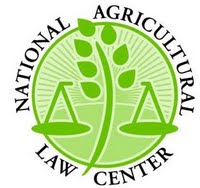Posted August 24, 2015
A Sacramento Superior Court judge has ordered the state to write stricter controls for agriculture water runoff in Monterey, San Luis Obispo and Santa Barbara Counties, according to The Californian article available here. KCBX also published an article available hereand Monterey County Weekly here.
Judge Timothy Frawley issued his decision on Aug. 10, following a May 15 hearing, resulting from 2013 lawsuit filed against the California Water Resources Control Board by five nonprofit groups and a Gonzales woman whose tap water is contaminated with ag waste.
Their concern is that pesticides were polluting water supplies. Specifically, the group contended a conditional waiver from the Central Coast Regional Water Quality Control Board didn’t provide enough environmental protections, according to KCBX.
The judge in this case agrees and said new rules need to be developed to protect both surface and groundwater supplies.
Current research contends that nitrates and phosphates present in ag runoff promote the growth of blooms in the ocean that produce toxics capable of poisoning marine mammals and birds, according to The Californian.
Judge Frawley issued a peremptory writ of mandate, ordering the State Water Resources Control Board to set aside its Ag Order and reconsider the conditional waiver of waste discharge requirements and its monitoring and reporting program.
He agreed with the environmental groups that the state board’s modified waiver is “not in the public interest because there is no evidence it will lead to quantifiable improvements in water quality or arrest the continued degradation of the Central Coast region’s water.”
The state water board is still reviewing the court’s decision and considering an appeal, according to spokesman Tim Moran, as stated in the Monterey County Weekly.
Sacramento-based attorney Tess Dunham representing Western Growers and the Grower-Shipper Association on the ag waiver says an appeal is definitely on the table.
“We are disappointed with the decision,” she says. “We don’t believe that the judge was correct in this case. We think he got it wrong.”
For more information on environmental law, please visit the National Agricultural Law Center’s website here.
Share:
